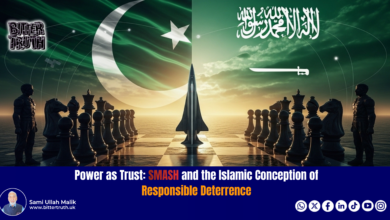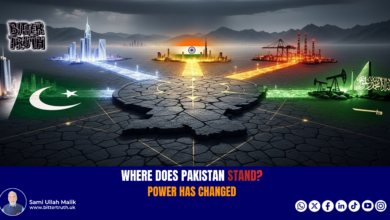The Future of Hamas: Who Will Succeed Yahya Sinwar
Hamas's New Leader: Khalil al-Hayya or Someone Else
In Israel, Yahya Sinwar was considered the “mastermind” behind the October 7, 2023, attacks on the country. Experts believed that his appointment following Ismail Haniyeh’s martyrdom sent a bold message of rebellion against Israel. The Israeli colonial military had listed him, along with other Hamas figures, as one of their most wanted individuals. Recently, an unverified image circulated on social media, showing a severely injured person lying on the ground, with Israeli authorities uncertain about their identity. Later, the Israeli army shared a video, reportedly taken by a drone, which they claimed depicted Sinwar’s final moments. In the footage, a masked individual is seen trying to fend off the drone. As Israeli army spokesperson Daniel Hagari confirmed Sinwar’s death in Rafah, celebrations erupted in Israel, while Muslims in Gaza and worldwide mourned the loss of another martyred fighter for the cause of justice.
Within hours, Israeli Defense Minister Yoav Gallant and Prime Minister Netanyahu officially announced Sinwar’s death. Khalil al-Hayya, a member of Hamas’ political bureau, confirmed the martyrdom, stating, “Yahya Sinwar’s movement will continue until the establishment of a Palestinian state on Palestinian soil, with Jerusalem as its capital. The blood of Sinwar and other Hamas leaders will continue to light our path.” Referring to the Israeli hostages, he added, “The occupiers’ hostages will not be released until the aggression on Gaza ends, Israel withdraws completely, and our prisoners are freed.”
Sinwar’s death has cast a pall of grief over Gaza. Umm Muhammad, who had to leave her home in northern Gaza and now resides in al-Aqsa Hospital, spoke to international media, saying, “A few days ago, I witnessed the fire in the camps and felt its pain in my heart. Today, we are enduring the same pain with the news of Yahya Sinwar’s death.” Another Gaza resident said, “Sinwar was martyred a year after the conflict in Gaza began. While opinions on his character may differ, it is undeniable that he was armed and fought Israeli forces when he was killed. He did not die in an intelligence operation as the Israeli army claims.” He added, “Netanyahu didn’t want Sinwar to die in a sudden skirmish. He wanted Sinwar to be killed in a way where Netanyahu could personally be seen giving the order to kill him.”
He further remarked, “Israel and its allies need to understand that Palestinians do not fear death. We have seen death at every moment of our lives and watched our loved ones embrace it with bravery and smiles. However, we long to return to a normal life, where we can find some peace. We are tired of this war.”
Omar, another Gaza resident, shared, “Like every Palestinian who has sacrificed their life in Gaza or the West Bank, we pray to God that this war ends now.”
Anas al-Jamal, a social and political activist, wrote on Sinwar’s death, “This is not the ending Netanyahu wanted. He didn’t want Yahya Sinwar to be seen as a hero, wearing his military uniform and fighting alongside the front-line forces in Rafah. Netanyahu didn’t want him to die in a clash; he wanted Sinwar’s death to be a personal victory, a moment where he could take full credit.” He also noted, “Netanyahu will hold accountable those soldiers who leaked the image of Sinwar, and now that image will become a symbol of pride for the Palestinian people.”
Bidaa al-Oula wrote on social media, “He was martyred during the battle in Rafah, not in some operation. He fought and did not flee. A kaffiyeh wrapped around his neck, and explosives in his hands, he took bullets to the forehead and head, not to his back or hands. He died advancing.”
Meanwhile, videos shared from Israel on social media and broadcast on local media showed celebrations following Sinwar’s death. In Kiryat Bialik, people were seen rejoicing on the streets. Some celebrants played Israel’s national anthem from loudspeakers on their balconies, while others honked car horns in joy. In another video, Israeli soldiers were seen handing out sweets to drivers on the streets. In Ashdod, people clapped and whistled to celebrate Hamas’ political leader’s death. In northern Israel, near the shores of Galilee, roads were blocked as hundreds of people danced and waved Israeli flags in celebration of Sinwar’s death.
Speaking to the media, a Jewish individual expressed his hatred by saying, “Yahya Yahya Sinwar was a bad man, and his time had come. His death is a gift to all of us Jews.” The families of hostages held by Hamas welcomed the death of Yahya Sinwar, but they also stressed that efforts to bring their loved ones home must be intensified. A man named Einav Zingwalker told local Israeli media, “We have settled the score with the killer, Yahya Sinwar, but we will not have complete victory until we save our loved ones and bring them home.”
In the city of Ramallah in the occupied West Bank, a man named Murad Omar told Reuters, “Yahya Sinwar’s death will complicate the situation further. After this, people in Gaza will have fewer options, and as a result, the war will drag on. The Americans and Israelis who think that today marks a new beginning in Gaza without Yahya Sinwar and Hamas are mistaken. These are just political slogans. The war will continue, and it doesn’t seem like it will ever end.” A few miles away in Hebron, Ali al-Hashlamon commented, “In my opinion, whenever someone dies, another person takes their place who is even more stubborn. Yahya Sinwar was a stubborn man, and we hope his successor will be just as determined, if not more so.”
On the other side, Jordan shares a border with Israel, and in its capital, Amman, thousands of people took to the streets to condemn Yahya Sinwar’s death and express solidarity with Hamas. One protestor told international media, “Yahya Sinwar and the resistance are ideas, and ideas never die. Bodies may fall, but ideologies remain intact. So, Yahya Sinwar’s death will only make the situation worse.”
On Friday morning, according to local Israeli media, the Israeli military issued a statement saying that there had been an attempt to infiltrate Israel from Jordan, during which two soldiers were injured. However, the Jordanian military released a statement denying these reports, saying, “There is no truth to the media claims that the Jordanian army crossed the western border of Jordan.”
In Iraq, protests had already occurred following the death of Ismail Haniyeh, but the demonstrations after Yahya Sinwar’s death were much larger compared to the past. Iraqi Member of Parliament Rais al-Maliki said, “The sight of Yahya Sinwar’s death was as painful as the deaths of millions of Palestinians and the displacement of thousands of hungry people.”
Iraqi journalist and blogger Ahmed al-Sheikh Majid posted on the social media platform X, writing, “Yahya Sinwar lived a life that only exists in poetry. Here in Iraq, we all know the reason behind this, and we also know the difference between blackmailers and lions. Yahya Sinwar is the lion of the Arabs, and his roar will continue to frighten the enemies even after his martyrdom.”
In Egypt, the prestigious Al-Azhar University referred to Sinwar’s death as the “martyrdom of a hero in the Palestinian resistance” without directly naming him. In a statement on X, Al-Azhar emphasized the need to preserve the reputation of figures seen as symbols of Palestinian resistance and to prevent their portrayal as terrorists. The statement further noted that “resistance, defending one’s land, and dying for it are ranks beyond comparison.”
Egyptian politician and former presidential candidate Hamdeen Sabahi attended a gathering after Sinwar’s death, saying, “You lived like a hero and attained the status of martyrdom. Like the other people of Gaza, you were martyred as a hero. You didn’t hide in a tunnel or take refuge with prisoners, but when confronted by the enemy, you stood alongside your comrades and fought.”
Abdel Azim Hamad, former editor-in-chief of the Egyptian newspaper Al-Ahram Al-Shorouk, expressed sorrow over the death of the head of Hamas’ political bureau, writing, “We must understand that Israel aims to eliminate all centres of resistance in order to pave the way for Israeli dominance in the region.” Another Egyptian media figure, Mahmoud Saad, shared a Palestinian poet’s verse on X following Sinwar’s death. The verse, when translated into Urdu, means: “If I die, my mother, do not cry. I will die so that my country can live.” An Egyptian individual named Ahmed Musa also condemned Israeli Prime Minister Benjamin Netanyahu on social media, calling him a “war criminal.”
Some bloggers and political activists compared the image of Yahya Sinwar’s body, shared by Israel, to the iconic photos of Che Guevara after his death. Guevara, a revolutionary born in Argentina, became a symbol of revolutionary movements worldwide in the second half of the 20th century. When he was killed in Bolivia in 1967, images of his body circulated globally. On the other hand, some have compared the death of Hamas’ political bureau chief to that of Saddam Hussein, noting that while Saddam Hussein was captured by U.S. forces hiding in a tunnel, Yahya Sinwar died bravely, with a weapon in hand, facing the enemy.
After the martyrdom of Hamas leader Yahya Sinwar at the hands of the Israeli military, speculation is growing about who will succeed him as the head of the organisation. A Hamas official has stated that, due to security reasons, the group will keep the identity of its ‘new leader’ confidential. In 2003, Israel assassinated the then-head of Hamas, Sheikh Ahmed Yassin, and his successor, Abdel Aziz al-Rantissi. During that time as well, Hamas chose not to disclose its new leader’s identity. It is expected that the election for Hamas’s new leader will take place in March 2025, and until then, a five-member committee will manage the organisation. This committee includes Khalil al-Hayya, Khaled Meshaal, Zaher Jabarin, and Shura Council leader Mohammed Darwish, with the fifth member’s identity kept secret.
In some circles, Khalil al-Hayya, the deputy to Yahya Sinwar and a senior Hamas official, is considered a strong candidate for the leadership. According to a Hamas official, al-Hayya has assumed responsibility for political and foreign affairs, and he is directly overseeing matters in Gaza. As a result, he is functioning like the acting head of the organisation. Regarding hostages, he stated that Hamas has the capability and manpower to ensure their safety, though he provided no further details, adding that since June, there has been very limited communication on the issue.
Khalil al-Hayya, based outside Gaza, is a highly senior Hamas figure. Currently residing in Qatar, he is leading Hamas’s delegation in negotiations with Israel regarding a ceasefire. It is said that he has deep knowledge, connections, and understanding of the situation in Gaza. Following Yahya Sinwar’s martyrdom, Hamas leaders are expected to meet again in the coming days to choose his successor. It’s worth remembering that Yahya Sinwar only became the head of Hamas this year after the death of former leader Ismail Haniyeh in Tehran.
Since July 2024, ceasefire negotiations concerning Gaza have stalled. Israeli and Western media have succeeded in creating the impression that Sinwar’s leadership was a major obstacle to a ceasefire agreement. In recent days, international media have reported that Yahya Sinwar placed more emphasis on a military solution to the Gaza issue rather than a diplomatic one. A senior Hamas official has warned that despite Sinwar’s martyrdom, there has been no change in Hamas’s conditions for accepting a ceasefire or releasing Israeli hostages. Hamas continues to demand a complete Israeli withdrawal from Gaza, unrestricted access for humanitarian aid, and the reconstruction of war-torn areas. Israel has outright rejected these conditions, insisting that Hamas must disarm.
When asked about Israeli Prime Minister Benjamin Netanyahu’s demand for Hamas to disarm, a Hamas official responded, “For us, surrender is impossible. We are fighting for the freedom of our people, and we will never accept laying down arms. We will fight to the last bullet and the last soldier, just as Sinwar did and said.” Sinwar’s death is one of the greatest losses the organisation has suffered in decades. While replacing him is a challenge, Hamas has a history of withstanding leadership losses dating back to the 1990s.
Although Israel has succeeded in assassinating most of Hamas’s leaders and founders, the movement has proven resilient in finding new leaders. Amidst this crisis, questions remain about the fate of the Israeli hostages held in Gaza, and who will now be responsible for their safety and security. In this context, Yahya Sinwar’s brother, Mohammed Sinwar, has emerged as a key figure. It is believed that he is leading the remaining armed factions of Hamas and may play a significant role in shaping the future of the movement in Gaza.
As Hamas faces this critical moment, fighting in Gaza continues. Last week, dozens of people were killed in Israeli military attacks on the Jabalia refugee camp in northern Gaza. Israel claims that Hamas is attempting to regroup there. Some analysts believe that Yahya Sinwar’s death is a significant blow to Hamas. In August, after Ismail Haniyeh’s death, Hamas elected Sinwar as a signal that the group would not bow down to Israel. Over the past year, Hamas has not only shocked and surprised Israel and all its allies but has also demonstrated that, in the future, these oppressors will meet their end on the battlegrounds of Gaza, God willing.






